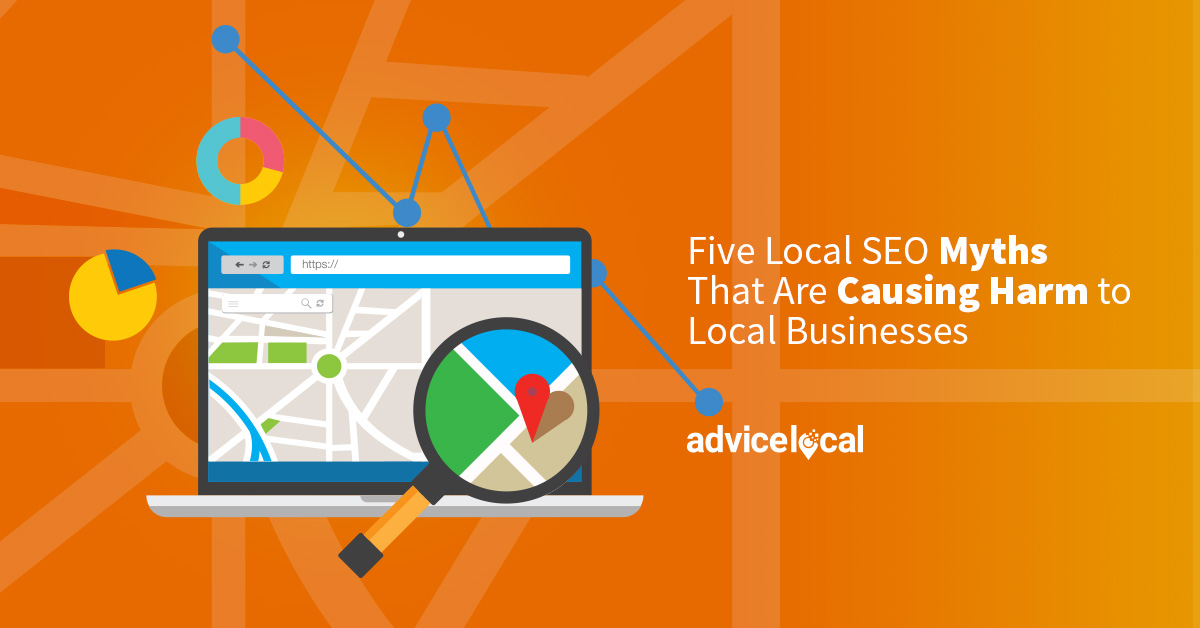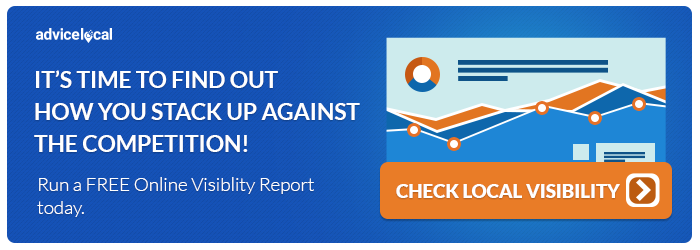When it comes to local SEO, there are many myths and half-truths that people like to repeat – or things that were true once upon a time – before Google made a change for the gazillionth time. Outdated information in blog posts, slide decks and guides has left local businesses with a lot of misinformation.
Local SEO Myths That Must Be Dispelled Immediately
While some of these strategies may have been true or even worked well in the past, they are now definitely causing more harm than good. But don’t worry! I’m here to address this – and debunk a few local SEO myths along the way.
1. Google Business Profile Is Not as Important
I’m not the bearer of bad news here, because facts are facts. And the fact is: Google Business Profile (formerly Google My Business) is one of the more important parts of local SEO. If a local business hasn’t claimed or created their Google Business Profile (GBP) listing, they are losing out – not only on potential customers, but also in telling Google what their business is about, where they are located, their phone number, business hours and much more.
If a business’ information is not updated – or if the GBP listing is not optimized – they have fewer chances to attract customers to their goods or services.
2. The Only Important Thing About Business Listings Is the NAP
The contact information (name, address and phone number, or NAP) of a business is absolutely essential. After all, that’s how they get found online and offline. But there are other aspects of a business listing that are just as important to attract local customers and beat out the competition.
Most business listings let business owners include descriptions, images, and offer deals without sending users to a website. Google Business Profile takes it even further by letting businesses add posts, create events, and offer promotions that a consumer can claim.
3. Google Penalizes GBP Listings That Break Their Guidelines
Google has specific guidelines that businesses should follow in order to represent their business on GBP. They include everything from eligible businesses to business descriptions, NAP and business hours.
One important aspect to consider on GBP’s guidelines is the use of categories. It is against the guidelines to use category names within the business name. This SEO strategy has gotten many a listing taken down.
Breaking this or any other rule could result in Google suspending the listing. There is no algorithm that Google uses to lower a business’ GBP ranking for breaking their GBP guidelines. Instead, they just suspend the GBP listing until the issue is resolved.
4. Backlinks and Citations Are the Same Thing
Thinking that citations and backlinks are the same thing is a common misconception, but that is most certainly not the case. Some people also think that when a business has online citations, they don’t need backlinks to boost their SEO. Both of these statements couldn’t be further from the truth!
I’ve talked at length about citations – and a business might want to try our step-by-step local citation audit! But long story short, online citations are mentions of a business in an online directory. They usually include NAP and the business’ URL – although this last one isn’t always available. The more positive mentions – or clean citations – that a business has, the more chances they have of reaching potential customers in their geographic area. It’s truly about quality citations, not just quantity.
Some citations will include a link (aka backlink) and others will not. Backlinks are links to a business’ website pages or posts around the web. Not all backlinks will include a citation (mention of the business) with the link.
While there’s much debate around the topic, backlinks are one of the more relevant ranking factors for Google, but they are also a way to build authority.
5. Reviews Are Useless
Some people seem to think that nobody reads reviews online. For a while, fake reviews were a big issue in the online world. Unethical marketers and businesses paid people to write positive reviews on their own products, or negative reviews on their competitors’ products. Trusting reviews was an act of faith.
But consumers have gotten smarter, and people who write these fake reviews have not. Countless articles on spotting fake reviews on websites like Amazon, Yelp, or even Google Business Profile expose certain tell-tale signs that a review is fake.
In fact, according to BrightLocal, 93 percent of local consumers use reviews to determine if a local business is good or bad.
Not only do consumers care about reviews, they are basing their decisions on them. Reviews are far, far from useless. And if a local business has negative reviews, it’s best to address them in a polite, apologetic manner instead of deleting them. This gives the business owner the chance to either apologize for a bad situation, or set the record straight.
Here are some ways that local businesses can get more reviews– and can address any negative reviews they may have.
Help Is a Click Away
It’s not always easy to distinguish a myth from the truth. Along with dispelling a few myths as we did above, to show you how much we care about getting found, Advice Local has an entire guide to help you tackle local SEO. Download the “Epic Guide to Local SEO” now.
Staying up-to-date with all the changes that are constantly going on around the web is not an easy task. At Advice Local, we have a team of dedicated local SEO professionals serving our agency, franchise and brand partners, plus our SMB clients. Request a demo today to see how we help local businesses get found online every single day!





Really excellent blog post. you clearly justifies the importance of SEO for the online business. SEO is important for a website’s success. Thank you so much for sharing and keep it up..!